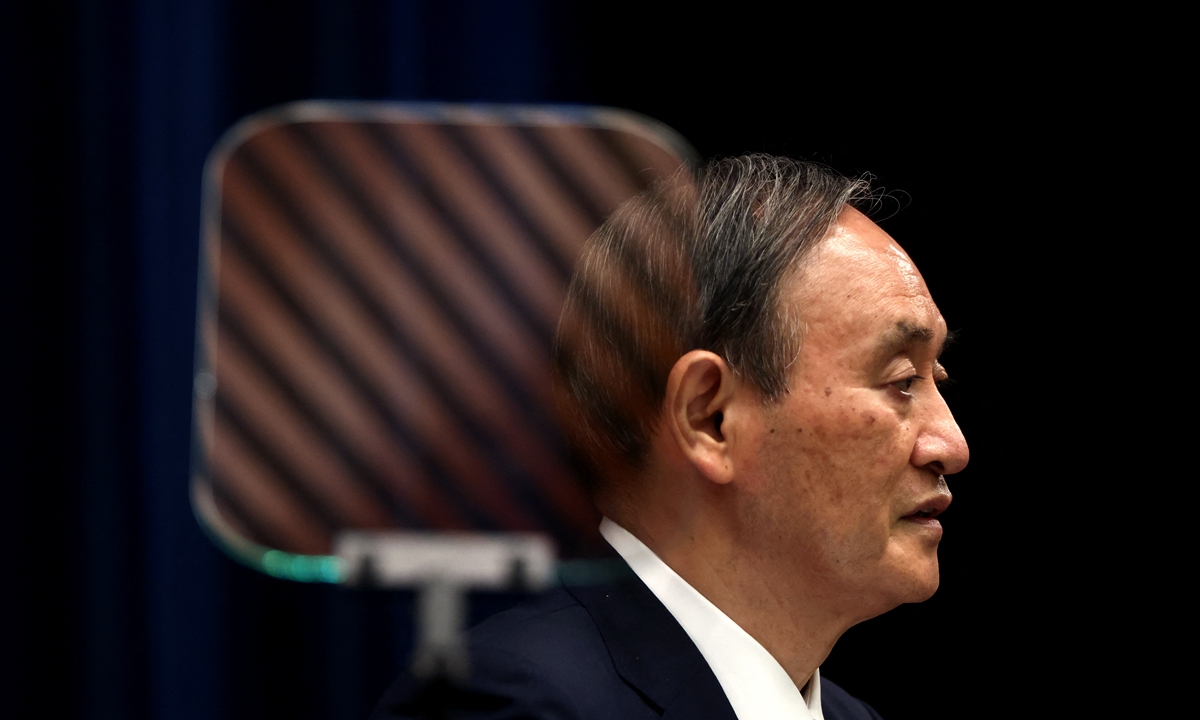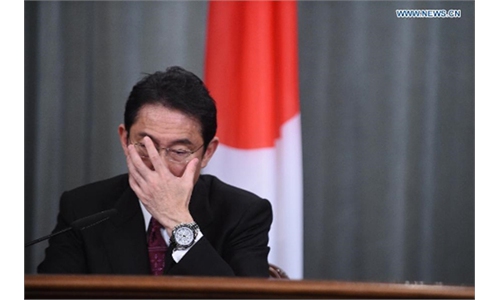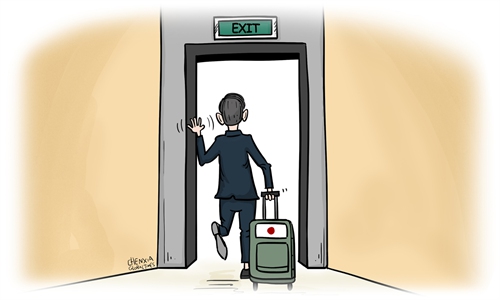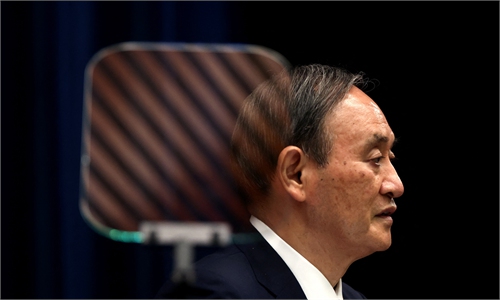Facing multiple challenges, next Japanese PM unlikely to make bold moves on Taiwan question

Japanese Prime Minister Yoshihide Suga Photo: AFP
Japanese Prime Minister Yoshihide Suga said in a surprise move on September 3 that he would step down, setting the stage for a new premier after a one-year tenure. The next Japanese prime minister will be under intense scrutiny for how he addresses the Taiwan question and China-Japan relations.
Tokyo openly discussed the Taiwan question during the Japan-US summit meeting in April, as well as on many other multilateral occasions. There are active reasons and passive reasons behind its decision. On the one hand, Tokyo considers Taiwan island to be of great value and significance to its national security as well as the maintenance of maritime trade and traffic channels. On the other hand, it is following Washington's policy toward the island and testing the limits of the Chinese mainland for the US.
Suga's approval rating slumped to a record low of no more than 30 percent, due to his failed handling of COVID-19. This is also one of the major reasons Suga decided to step down. The new Japanese administration will also face a dilemma. Fighting COVID-19 is not just a matter of social governance, it is also a matter of huge financial, human and material resources. Japan reportedly will seek another record defense budget for fiscal 2022. Yet if the country cannot recover from the epidemic, its defense budget will become a burden to economic recovery. This means the Japanese government will likely sacrifice the spending on defense to save the economy. In that case, how can Japan possibly help defend Taiwan?
September and October are the usual election season in Japan. During this time, some candidates often make aggressive remarks to cater to the general public for attracting more votes. So it is clearly a political maneuver to portray Taiwan as weak and make it seems that the Chinese mainland is bullying the island or threatening it to inflame the public opinion.
One of the popular candidates for the next Japanese prime minister is Fumio Kishida, former Japanese foreign minister, and he is a representative of the moderates in Japan. He probably will not take any particularly bold measure to defend Taiwan. More importantly, Japan's move toward the Taiwan question is not something that can be decided by one leader. Therefore, it is important to discuss the question in the context of China-US-Japan relations and sometimes the overall China-Japan relations.
For Japan, the most important and urgent issue is how to recover its economy. The new Japanese administration will not focus on dealing with the Taiwan question - a problem that needs to be considered under the policies toward China. Only when it comes to deal with the "China threat" in terms of defense and security that Japan would like to discuss about the Taiwan question.
Suga's foreign policy, especially in the field of Japan-US relations, has largely followed the line of his predecessor Shinzo Abe and maintained the framework of the Japan-US alliance. And this framework has restrained the Japanese government and limited its policy choices.
But if Japan returns to the situation where prime ministers change every year, it will not be able to build and sustain a stable long-term strategy. Consequently, it will affect its commitments to its allies, preventing it from improving its defense capabilities or strengthening its alliances.
We can expect new Tokyo government will continue to sound out or attempt to cross some inherent bottom lines between China and Japan on the Taiwan question. Beijing needs to be on its guard against this. Just because there has been a change of leadership does not mean that Japan will relent on issues involving Taiwan.
Japan has limited choices. Even if it is unwilling to commit itself to defending Taiwan at home, it has to follow US' lead on the Taiwan question.
The author is an associate research fellow at the Center for Japanese Studies, Fudan University. opinion@globaltimes.com.cn



